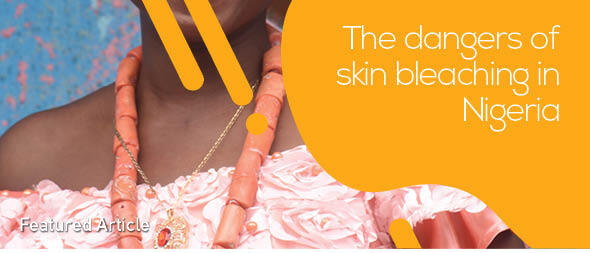Dear Editor,
Skin bleaching creams are increasingly popular in Nigeria due to several reasons, such as cultural beliefs, improved self-esteem, and the desire for a Western appearance. The practice is particularly prevalent among women, with 77% reported to bleach their skin, compared to 28% of men1. However, the safety of these products is a concern, as they often contain toxic substances that can cause long-term harm to the skin2. Therefore, it is crucial to address this issue by implementing tighter safety regulations, increasing consumer awareness, and providing better access to reliable and affordable laboratory services for product testing3.
The Nigerian Federal Agency for Food, Drugs, Administration and Control (NAFDAC) is the regulatory body responsible for ensuring the safety and quality of regulated products in Nigeria, including cosmetics and personal care items4. NAFDAC works in partnership with reputable organizations such as the Institute of Public Analysts of Nigeria (IPAN) to conduct rigorous laboratory testing and analysis of these products, ensuring that they meet the required standards5.
Despite the efforts of NAFDAC and IPAN, many skin-bleaching creams on the market still do not meet strict safety standards6. This is because some manufacturers attempt to cut costs by using cheaper, less safe ingredients in their products. Additionally, there are challenges associated with laboratory analysis in Nigeria, including the lack of access to reliable and affordable laboratory services7, and the lack of awareness among consumers about the dangers of skin bleaching and the importance of laboratory analysis.
One of the main dangers of skin bleaching is the use of toxic substances that can cause long-term harm to the skin, including mercury, hydroquinone, and corticosteroids8. These substances can cause skin irritation, discoloration, and even lead to more serious health problems such as kidney and liver damage9. Furthermore, the long-term use of skin bleaching creams can weaken the skin, making it more susceptible to skin infections and other skin conditions1.
To address these dangers, it is essential to increase public awareness about the dangers of skin bleaching, and to educate consumers about the importance of using high-quality products that have been tested for safety. Consumers can also take a number of steps to ensure they are purchasing reliable products, including checking product reviews, consulting a doctor before purchasing a new product, and reading the product label for any warnings or potentially harmful ingredients. In addition to increased consumer awareness, there is a need for stricter safety regulations and greater access to laboratory analysis services in Nigeria8. This will require a concerted effort by government, industry, and civil society, working together to protect the health and wellbeing of Nigerian consumers.
Overall, the increasing use of skin bleaching creams in Nigeria highlights the need for stricter safety regulations and increased consumer awareness. Therefore, to protect consumers and ensure product quality, there must be a concerted effort by government, industry, and civil society to increase public awareness, enforce safety regulations, and provide access to reliable and affordable laboratory services to ensure the health and wellbeing of Nigerian consumers.


